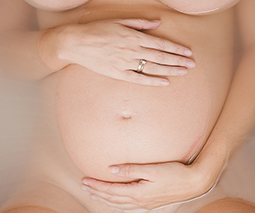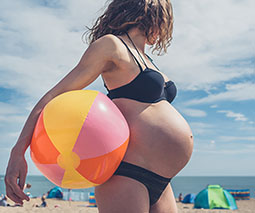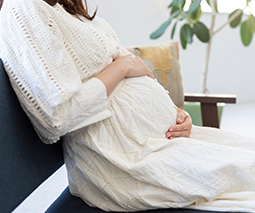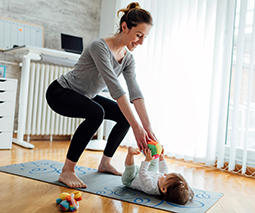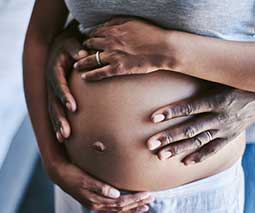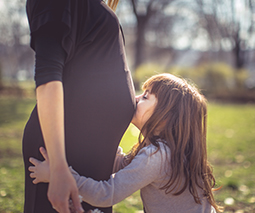Plus-size and pregnant: What you need to know about weight gain

Gaining weight is a perfectly normal part of pregnancy and nothing to be embarrassed about, but what about when you’re already plus-size? Here’s everything fuller-figured ladies need to know about baby weight gain.
For some overweight women, falling pregnant can be a challenge in itself with excess weight gain also often associated with polycystic ovary syndrome (PCOS), which affects fertility. Not all plus-size women have this issue however, with many able to conceive naturally with no problems whatsoever. Once pregnant it is of course an exciting time, but for many larger ladies it can also be quite stressful and emotional with feelings of anxiety and sensitivity around their ever increasing body shape and no clear idea of how much weight is okay.

When excess weight becomes a problem
According to Melanie McGrice, dietitian and author of The Pregnancy Weight Plan, although weight gain is completely normal when pregnant, too much excess weight can significantly impact the health of the mother and the baby.
Some potential risks and issues include:
- A more difficult pregnancy physically – overweight women are more prone to things such as varicose veins, heartburn and haemorrhoids; and might find it extra difficult to move about and sleep well.
- A higher chance of the baby not going to full term.
- An increased risk of gestational diabetes – which can cause miscarriages, very large babies (meaning difficult birth), premature birth and a higher risk of Type 2 diabetes for the mother later in life.
- A harder labour – in some cases, natural birth may not be possible.
- There is also an increased risk of obesity and diabetes in babies born to overweight mothers.
How much weight gain is okay?
Every woman is different, however the general medical guidelines are that in pregnancy women should gain between 11.5 and 16kg to be healthy. According to Melanie, plus-size women don’t need to gain as much weight during pregnancy as those who are slimmer, as they don’t require the additional fat stores.
“Remember that your baby is only 3-4kg when you deliver him or her,” she says. “My book helps women to calculate how much weight they need to aim for during pregnancy depending upon their conception weight. However, if you feel like you need help managing your weight throughout pregnancy, I’d highly recommend making an appointment to see an Accredited Practising Dietitian.”
Healthy body, mind and baby
Pregnant women should NEVER go on a weight-loss diet, no matter their size. Your growing baby needs many nutrients to thrive. Instead, the best way for plus-size women to ensure they’re being as healthy as possible for themselves and their baby (without gaining too much extra weight), is to simply eat a healthy, balanced diet and stay physically active. When following this, some larger women find they actually lose weight during pregnancy, however don’t worry if it doesn’t happen to you (and certainly don’t starve yourself trying to achieve this).
It’s important to look after yourself mentally as well. If you don’t feel comfortable looking at the scales, then get your doctor or nurse to record it without telling you (they will advise you if there are any problems).
Pregnancy is not just about what weight you gain or don’t gain, and if you aren’t feeling supported by your doctor then look for a different one. This should be a happy time, so don’t let anyone make you feel bad about yourself – because a healthy mind is just as important for you and your baby.
Most women have pregnancy issues
Remember that most women, overweight or not, struggle with weight during pregnancy thanks to hormone changes, an increased appetite and fatigue; and some have different challenges altogether. So if you’re plus-size and having issues with your weight, seek professional advice if you can, and don’t compare yourself to others. Every woman is different – especially in pregnancy – and the ultimate goal is simply to deliver a healthy, happy baby.

